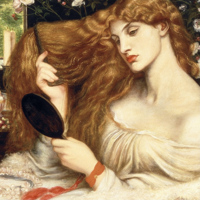Anu mbti kişilik türü
Kişilik
"Anu hangi kişilik türü? Anu, MBTI, 1w9 - so/sp - 126 'de ISFJ kişilik türüdür, SCOAI, SCOAI, büyük 5, ESI' dır."
The star symbol 𒀭, which can also be pronounced "An", is used again, but phonetically, in the middle of the name, for the sound "n". Dingir (𒀭, usually transliterated DIĜIR, Sumerian pronunciation: [tiŋiɾ]) is a Sumerian word for "god." The cuneiform sign by itself was originally an ideogram for the Sumerian word an ("sky" or "heaven"). Its use was then extended to a logogram for the word diĝir ("god" or goddess) and the supreme deity of the Sumerian pantheon An. Akkadian took over all these uses and added to them a logographic reading for the native ilum and from that a syllabic reading of /il/. The concept of "divinity" in Sumerian is closely associated with the heavens, as is evident from the fact that the cuneiform sign doubles as the ideogram for "sky", and that its original shape is the picture of a star. The Winged Bull of Heaven. The Thunderer. Anu was believed to be the supreme source of all authority, for the other gods and for all mortal rulers, and he is described in one text as the one "who contains the entire universe". He is identified with the north ecliptic pole centered in the constellation Draco and, along with his sons Enlil and Enki, constitutes the highest divine triad personifying the three bands of constellations of the vault of the sky.
Biyografi
Anu is the divine personification of the sky, supreme god, and ancestor of all the deities in ancient Mesopotamian religion. Anu was believed to be the supreme source of all authority, for the other gods and for all mortal rulers, and he is described in one text as the one "who contains the entire universe". He is identified with the north ecliptic pole centered in the constellation Draco and, along with his sons Enlil and Enki, constitutes the highest divine triad personifying the three bands of constellations of the vault of the sky. By the time of the earliest written records, Anu was rarely worshipped, and veneration was instead devoted to his son Enlil, but, throughout Mesopotamian history, the highest deity in the pantheon was always said to possess the anûtu, meaning "Heavenly power". Anu's primary role in myths is as the ancestor of the Anunnaki, the major deities of Sumerian religion. His primary cult center was the Eanna temple in the city of Uruk, but, by the Akkadian Period















